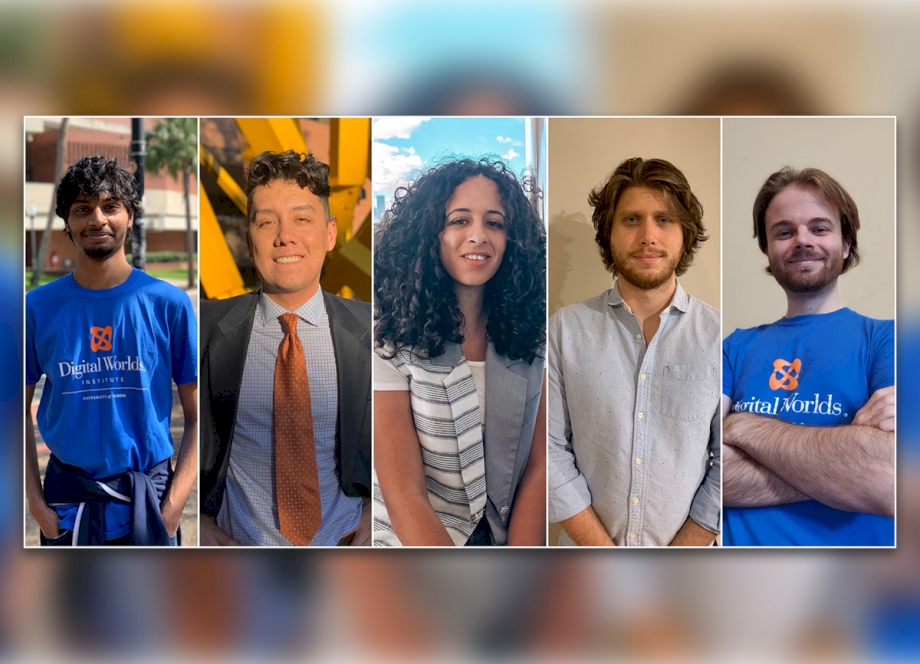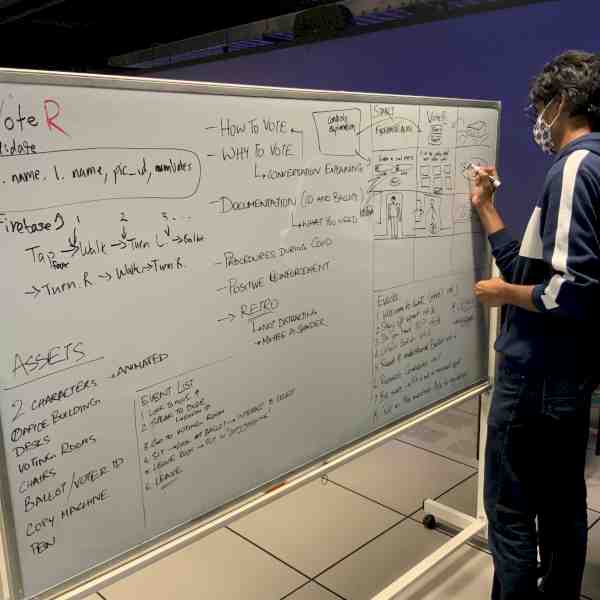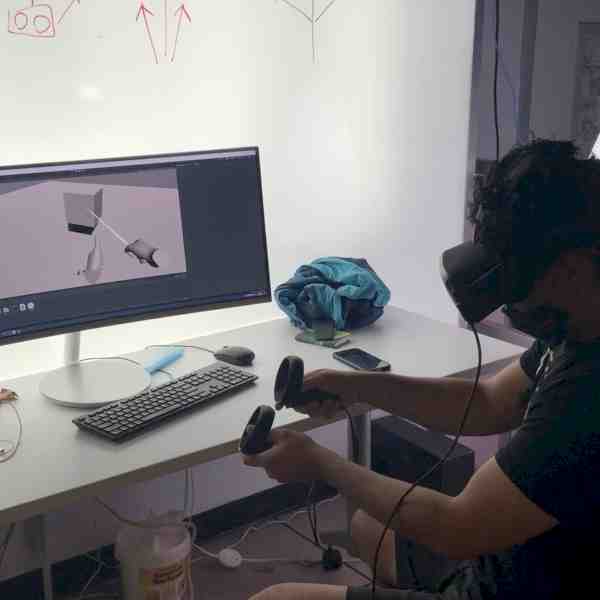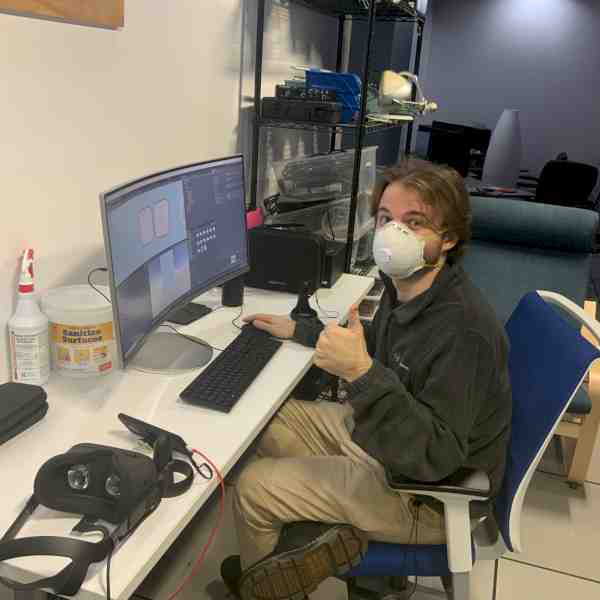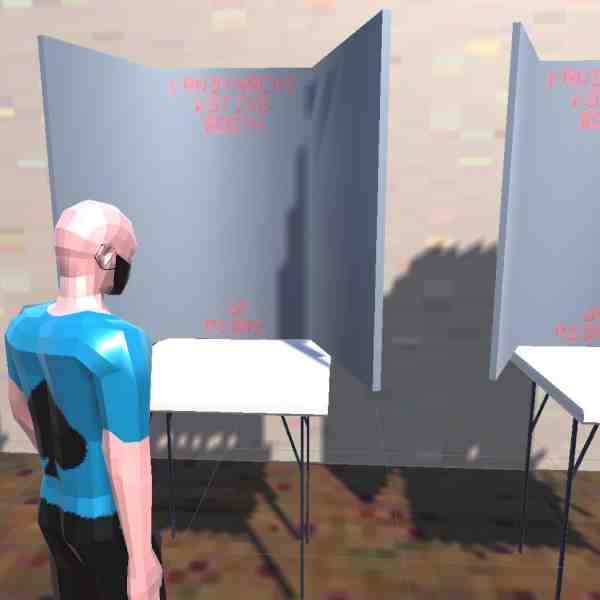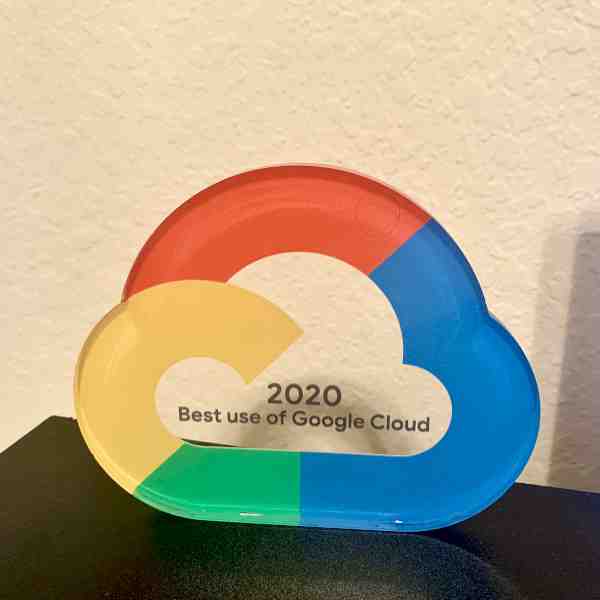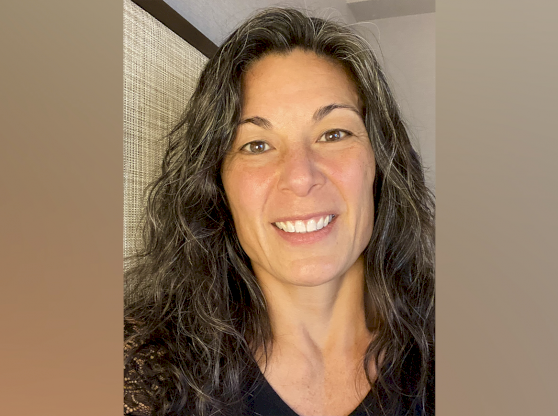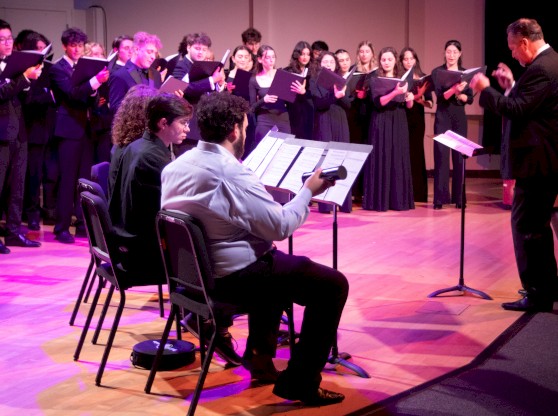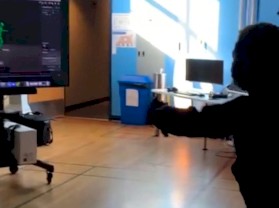Over the course of the Fall 2020 semester, five students pursuing their Master’s in Digital Arts and Sciences (MiDAS) at the University of Florida Digital Worlds Institute have competed in multiple hackathons hosted by universities across the country.
A hackathon, as team member Jordan Smith describes it, is like a stress test for your skills.
“You are challenged to make something cool in a very short amount of time,” Smith said.
Computer programmers and others involved in software development, such as graphic designers, domain experts, and interface designers, collaborate as a team to develop a functioning product or software within a two-day time limit. Participants of a hackathon are typically instructed to build a project that adheres to a specific theme or utilizes a specific software. Often, a hackathon’s theme prompts students to use their skills to create something that has a positive social impact on society.
“Each hackathon has a schedule that goes throughout the whole 36 hours with a bunch of different workshops you can attend,” team member Patrick Molen said. “They even have workshops for networking. Sometimes you can share your animal crossing island and a lot of other random stuff.”
This team, however, spends most of their time working on their project. When the hackathon begins, they have to quickly make a decision about what they will produce.
“We start by thinking, ‘Well, what problems can Virtual Reality solve?’” Austin Stanbury said. “Then we take a step back and think, ‘Well what problems are people really facing?’”
UF’s victorious cohort, which includes team members Jordan Smith, Patrick Molen, Austin Stanbury, Ines Said, and Aadithya Gowthaman, has managed to consistently secure impressive rankings and awards from hackathons at Vanderbilt University, Florida International University, the University of Central Florida, and Georgia Tech. Some of their achievements include the “Social Media Track” at FIU’s Shell Hacks, “Best Hardware Hack” at UCF, and “Best Use of Google Cloud” and “Best Hardware Hack” at VandyHacks.
“It’s not just like, ‘Oh you go, you’ll probably win a prize.’” Stanbury said. “It’s a real challenge to win these tracks. I am surprised, to be completely honest with you, because I had no idea that we were going to be as successful as we were. It’s really something. It’s kind of crazy actually.”
Some of their award-winning projects include VoteR, a virtual reality mobile application developed for Google Cardboard that educates users about the voting process, and ShellCare, an augmented reality application using Microsoft HoloLens that could help individuals engage with social media in a healthier way.
Instead of traveling around the country every weekend to attend the various hackathons, the COVID-19 pandemic forced the events online. These graduate students had the unique opportunity to utilize the lab space and resources available to them at the Digital Worlds Institute on campus.
The team typically hunkers down in the Reality Lab, a large digital laboratory space that allows them to remain socially distanced but physically present.
“I feel like this is kind of an edge we have on other teams,” Smith said, “because due to COVID, most teams are working remotely, even from each other.”
As the other four team members nodded in agreement, Austin Stanbury added, “I can definitely say that working in that collaborative environment, which is kind of unique for our situation, has been really instructive for all of us.”
Stanbury also shared that he has been able to watch and learn first-hand from his teammates during the hackathons, something that wouldn’t be possible if they were not sharing the same space.
While this cohort’s massive amount of success during this year’s hackathon circuit is incredibly impressive, it’s also worth noting how they truly embody what it means to be an interdisciplinary team, highlighting what the MiDAS program strives to represent. Each member of this cohort comes from different undergraduate backgrounds that include economics, digital art, computer science, and visual arts. Their interests in the digital arts and sciences field are also vastly different, yet they all do their part to contribute to the team as a whole.
“We don’t have a strict design team and coding team,” said Ines Said. “We go back and forth and each one of us contributes something amazing.”
A hackathon weekend typically means more stress and less sleep for the team. They often work through the nights to complete their project in time. But it is through that very sleep-deprived state—and food delivery services and caffeinated chocolate—that the team grows together and becomes friends.
“It is surprising because we just met each other a couple of months ago,” Aadithya Gowthaman said, “and we work amazingly well together.”
